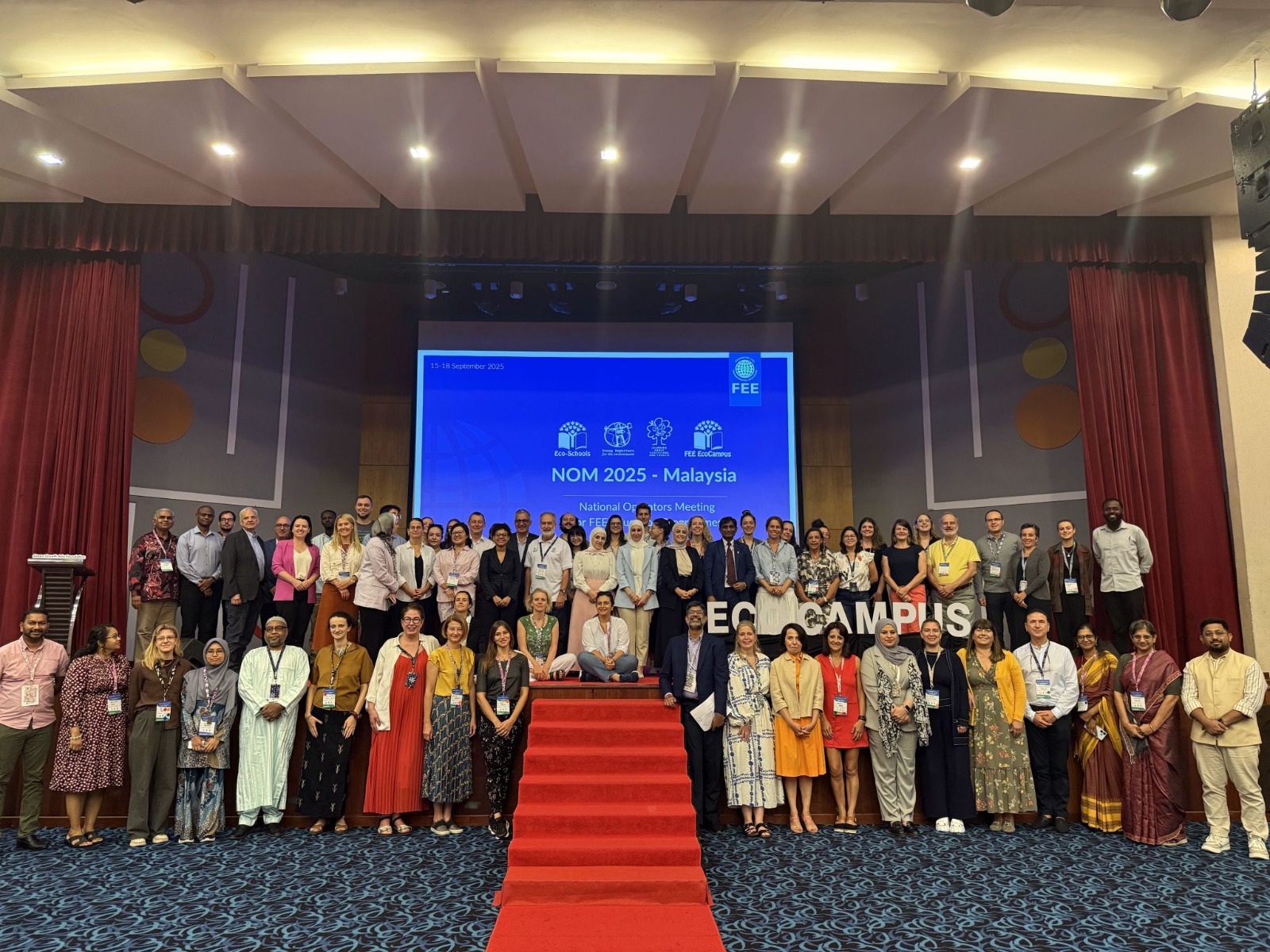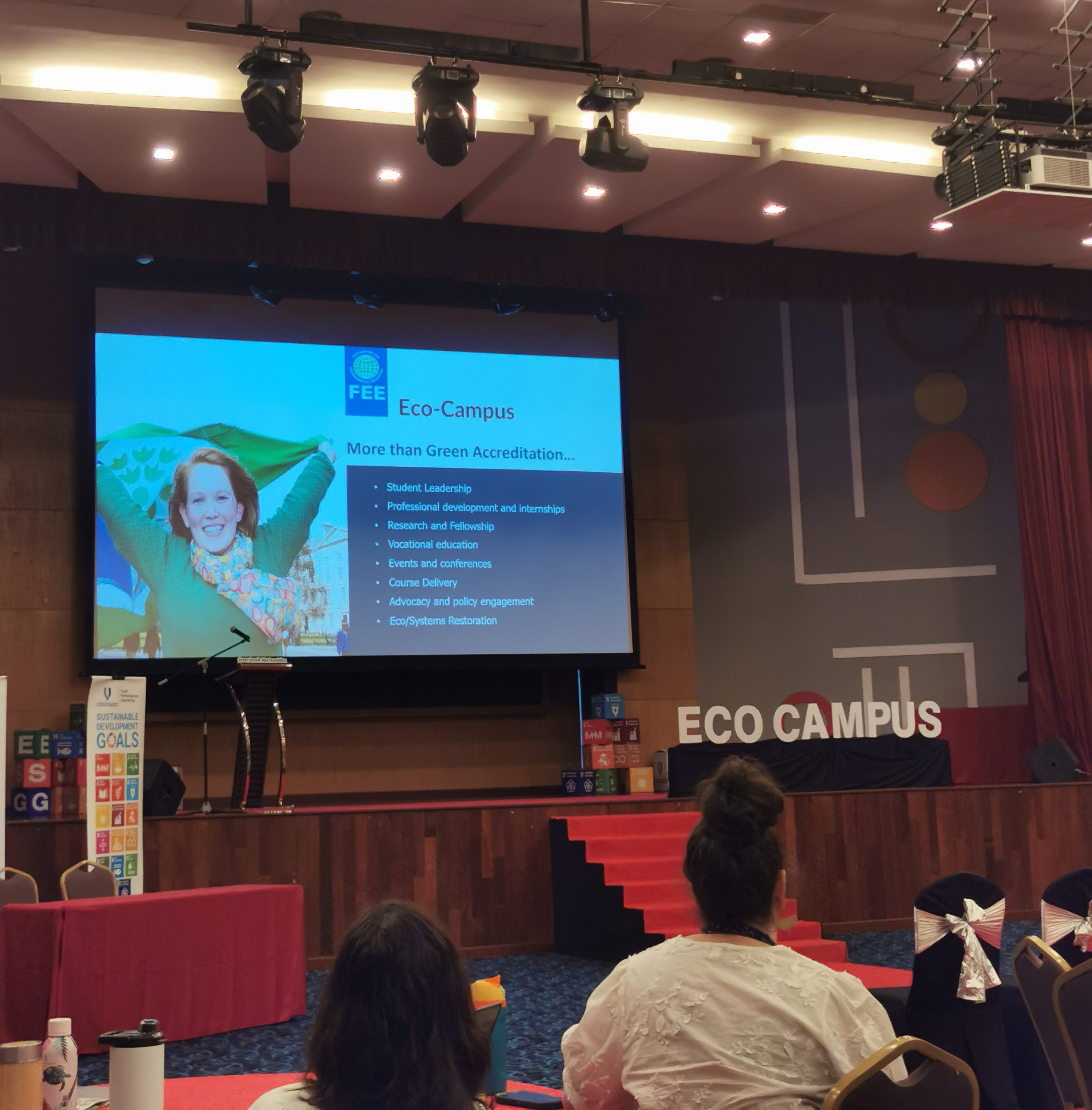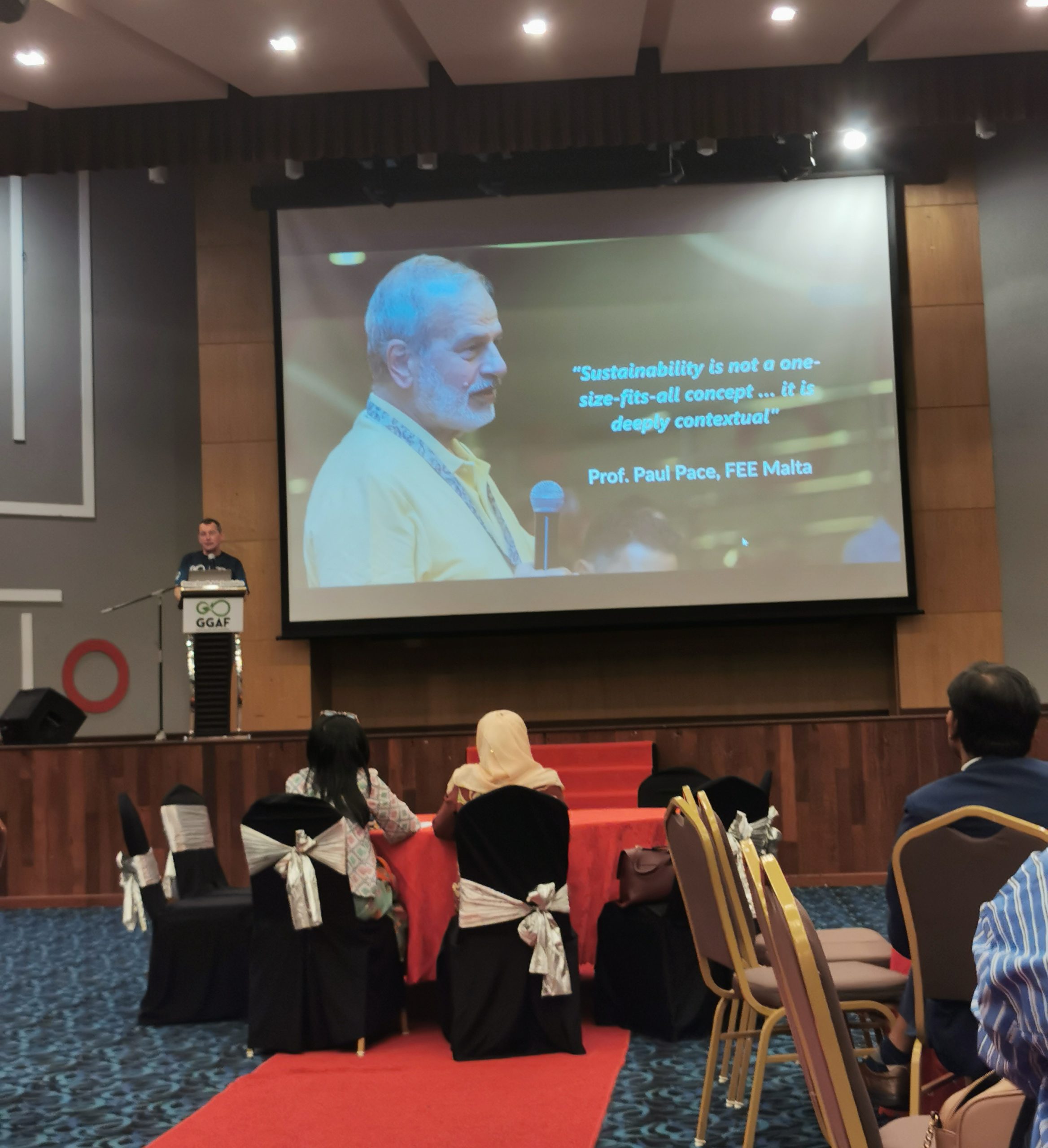Immediately following the Annual National Operators Meeting (#NOM2025), the 2nd International EcoCampus Conference (ECIC) took place in Kuala Lumpur, Malaysia, from 18–20 September 2025. The event was held under the theme “Transforming Higher Education for Climate Action: A Whole-System Approach” and featured the launch of the “Masterplan for Empowering Malaysia’s Green Future 2025–2030.” Supported by the Green Growth Asia Foundation (GGAF), IMT-GT UNINET, and the Foundation for Environmental Education (FEE), the conference gathered 150 participants from around 40 countries—including higher education leaders, researchers, students, and partners—at the International Youth Center.
At the official opening, participants were honored by the attendance and keynote address of Her Royal Highness Princess Tengku Puteri Raja Ilisha Ameera, representing the Crown Prince of Pahang, who called on Malaysia’s Ministry of Education to make the EcoCampus programme a national initiative.
The opening session featured inspiring speakers from Malaysia and across the globe:
🎙️Welcome Address: YBhg. Datuk Ir. Ts. Dr. Mahadi Mohamad, Chief Executive Officer, Green Growth Asia Foundation (GGAF)
🎙️Opening Address: Dr. Nikos Kassimatis Petrou, President, Foundation for Environmental Education, Denmark
🎙️Special Address: YB Datuk Ts. Mustapha Sakmud, Deputy Minister of Higher Education, Malaysia
🎙️Special Address: Katerina Ananiadou, Coordinator, Greening Education Partnership (GEP), UNESCO Paris
It was announced that the EcoCampus programme will now operate as a standalone initiative, independent of the Eco-Schools programme. While Eco-Schools has been instrumental in fostering environmental awareness and action among children, the challenges in higher education are distinct. Young people must be prepared to enter professional fields where sustainability is not yet a standard requirement. Employers, institutions, and systems still lag in recognizing the urgent need to integrate sustainability skills and leadership across all sectors.
This is why EcoCampus is essential—it goes beyond the idea of “green campuses” by:
•Building recognition of sustainability competences in higher education and the labor market across all professions
•Equipping young people with the tools to create and respond to the growing demand for ESD (Education for Sustainable Development) professionals
•Bridging the gap between academic preparation and societal transformation
The conference focused on a holistic, system-wide approach to sustainability, highlighting the urgency of embedding climate change and sustainability into educational frameworks. Discussions pointed out that many national curricula still do not include climate change, with nearly half of them omitting the topic altogether. This gap poses a serious challenge for future generations in addressing environmental issues.
Through six thematic sections, the conference showcased diverse approaches to embedding sustainability in education:
•Whole-system approaches – interdisciplinarity, teacher training, and universities’ impact on policy-making.
•Cross-sector partnerships – collaboration among universities, schools, NGOs, and industry.
•Green vocational education – the role of TVET and career guidance in preparing a green workforce.
•Sustainability across education levels – from school gardens to ethnographic studies linking communities and universities.
•Sustainable campus initiatives – examples from Portugal, Bangladesh, Ireland, India, Qatar, and Africa where campuses serve as “living laboratories.”
•Student leadership – student committees and research projects in renewable energy, biodiversity, and the circular economy.
Multidisciplinary sessions allowed participants to explore practical pathways for integrating sustainability in education:
🎤Tan Sri Dzul Razak (University of Malaysia, Sarawak) stressed the urgent need for systemic change in education to address climate challenges, critiquing traditional competitive, factory-like models, and advocating for a “Communiversity” model that nurtures empathy, compassion, and interconnectedness.
🎤Professor Paul Pace reminded participants that sustainability is not a one-size-fits-all model but must be adapted to local contexts, with interdisciplinarity as a key element in creating solutions that bridge sectors.
🎤Katrin Kohl (UNESCO Co-Chair, York University) and Dr. Subarna Sivapalan FRSA, SFHEA (University of Nottingham Malaysia) presented findings from UNESCO’s “Transforming Futures” project in Malaysia, exploring how sustainability can be integrated into all aspects of higher education—from curriculum and governance to campus operations and community engagement.
🎤Professor Charles Hopkins (FEE/UNESCO Chair) led a co-creative session “FEE University”, where participants identified 12 priority themes for systemic transformation in higher education, including sustainable leadership, inclusivity, student advocacy, and alumni engagement.
🎤Katerina Ananiadou (Greening Education Partnership, UNESCO) emphasized the central role of higher education in GEP’s vision.
🎤Pramod Kumar Sharma and Lee Wray-Davies (Foundation for Environmental Education) conducted a hands-on workshop on integrating ecosystem restoration into practice, turning frameworks into flagship projects.
🎤Prof. Dato’ Dr. Nor Aieni Haji Mokhtar closed the conference by reflecting on her 40 years of academic and leadership experience, highlighting the transformative role of higher education in building resilience and sustainability.
The conference reaffirmed that the future of education for sustainability lies in connecting levels, disciplines, and sectors—illuminating multiple dimensions, fostering collaboration, and building partnerships that define the whole-system approach, while clarifying the pivotal role of higher education in driving climate-resilient transformation.
ECIC 2025 clearly demonstrated that higher education is both a driver of systemic change and a bridge linking educational levels and sectors. The main takeaways included:
🎓Jointly defining the dimensions of a whole-system approach: governance, pedagogy, student leadership, teacher training, vocational pathways, industry partnerships, internships, policy engagement, campus operations, applied research, values, and contextual adaptation.
🎓Renewed emphasis on teacher training and continuous professional development to mainstream ESD across all levels of education.
🎓Strong recognition of student leadership as a central driver of climate solutions.
🎓Evidence of how partnerships and local innovations can scale into global impact.
These conclusions align directly with UNESCO’s Greening Education Partnership (GEP), which calls for systemic change—from schools, teacher training, and curricula to institutional transformation.
🤝The conference closed with a call to embrace a comprehensive institutional approach, integrating sustainability into curriculum, governance, operations, and community engagement. Participants committed to advancing sustainability within their own contexts and forging alliances to drive positive change.



